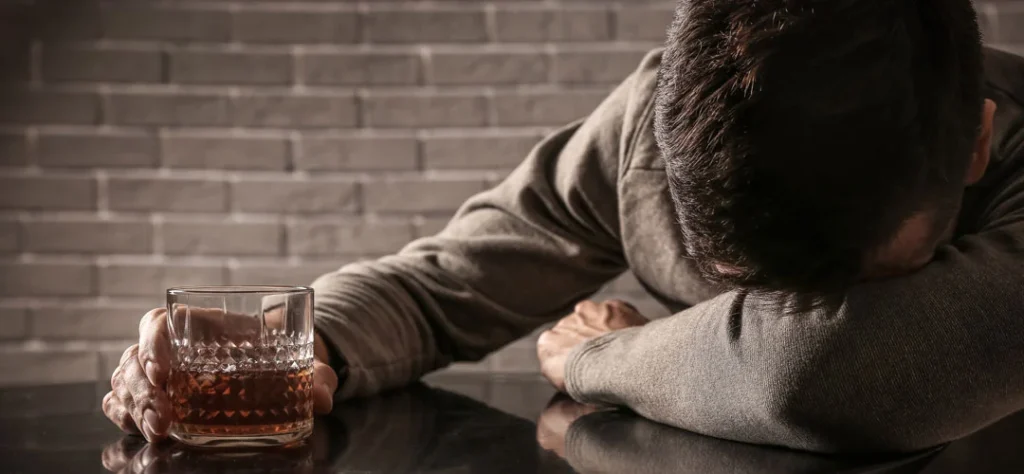The Risks and Realities of Choosing to Drink Alcohol in Sobriety
Can an alcoholic ever drink again? In short, no. Experts agree that for those with alcohol use disorder, even one drink will trigger a relapse.
Read on to learn why moderating or trying to control drinking is risky, how alcohol consumption can affect the brain, what moderation means for an alcoholic, and why abstinence is the best way to live a healthy alcohol-free life.
Get more info and support from South Shores Recovery now!
Can Recovering Alcoholics Start Drinking Again?
For those who have overcome alcohol use disorder, the question of whether an alcoholic can ever drink again without falling back into old habits of alcohol abuse is a complicated one. The idea of “just one drink” is a siren call that promises controlled fun, but for those who have already done the hard work to quit drinking, it’s an illusion that hides the brutal truth of addiction.
The changes to the brain chemistry from previous alcohol abuse create a dangerous landscape where responsible drinking has become impossible. That’s why most professionals recommend complete abstinence as the best way to maintain the gains of recovery.
Every step back towards alcohol on this journey is risky. For those who have fought to overcome alcohol dependence, one drink can trigger the cycle of addiction again.
It’s a harsh reality that the battle against alcohol use disorder doesn’t end with cutting off physical dependence – it’s a lifetime commitment to choosing to stay sober, a choice that can impact the entire direction of your life.
Why Recovering Alcoholics Drink Again and the Results

Instead of a straight line, the road to recovery is a winding path with twists, turns, and occasional forks that can lead a recovering alcoholic off track. The reasons for taking that detour are as unique as the individuals who walk this path. Some common reasons are:
- They think they can control their drinking this time around
- Social pressure to drink in certain situations
- Using alcohol as a coping mechanism during stress or personal challenges without realizing that temporary escape comes at the cost of their recovery.
You likely already know that quitting drinking offers numerous health benefits and is crucial for maintaining sobriety. However, the challenges of controlled drinking and the importance of seeking support from medical professionals and participating in support groups such as AA and others cannot be overstated.
When a recovering alcoholic decides to drink again they will often underestimate the power of their alcohol addiction. Each drink is a roll of the dice with huge stakes. Giving in to the urge can lead to a full blown relapse, erode the foundation of long term recovery, and often require a return to treatment to rebuild what was lost.
The consequences aren’t just personal, they ripple out to relationships, careers and overall well-being. It’s a hard truth that highlights the importance of being vigilant and supported in sobriety.
Moderation for Alcoholics: A Deadly Illusion
The concept of moderation pops up in the process of recovering from alcohol like a mirage – appealing but often impossible for those with a history of alcohol abuse. In clinical terms, moderate drinking is defined as one drink a day for healthy women and up to two for healthy men but these guidelines don’t fit everyone and get fuzzy when it comes to recovering alcoholics.
What constitutes light drinking is subjective and for someone with an alcohol addiction, the boundaries disappear quickly.
Quitting Alcohol and the Changes to Your Brain

Alcohol treatment plays a crucial role in managing alcohol use disorder, addressing the debate over abstinence versus controlled drinking. Recovery treatment programs, therapy, and support groups often emphasize the importance of finding the right approach for each individual.
All of these sober support for alcohol abuse offers more than a foundation to quit drinking, they also allow your mental health to improve and for your brain to begin healing.
The idea that you can move from being alcohol-dependent to being a controlled drinker is a debated one and is largely discouraged by experts and support groups. Alcoholics Anonymous and most behavioral health professionals recommend a clear line – complete abstinence – because of the risks involved in even one drink.
What’s the Deal With Moderation Management Programs?
An alternative to abstinence, Moderation Management (MM) programs offer a structured way for individuals to potentially drink responsibly and in limited amounts. These programs have:
- A 30-day commitment to sobriety to start, with no alcohol intake whatsoever
- Re-calibrate drinking habits and address the underlying triggers and patterns of abuse
- Encourage participants to replace harmful behaviors with healthier ones and develop a more mindful relationship with alcohol
But MM is not suitable for everyone in recovery from alcoholism. For many who have struggled with alcohol use disorder and withdrawal the risk of relapse in trying to drink in moderation is too great.
Think about: in trying to drink in moderation, how much alcohol is worth it to throw away the gains and benefits found when you were able to stop drinking?
Some may make it through the MM program without incident but one drink can lead to a full-blown relapse so this is a gamble many are not willing to take. It’s a harsh reality that unlike other challenges in life where moderation is key, recovery often demands a different kind of absolute.
There are Real Risks in Trying Drinking in Moderation
For a recovering alcoholic, trying to moderate drinking is like walking a tightrope with no safety net, with risks at every turn. Chasing controlled drinking can quickly turn into abuse as the brain’s altered response to alcohol can make one drink feel like an open invitation to many more.
The health risks of even controlled drinking are not to be taken lightly; from heart disease to high blood pressure the cost of that “one drink” is more than you are willing to pay.
The verdict is getting clearer as more research comes out: the risks of any amount of drinking are mounting and the case for abstinence is getting stronger with each study.
For those who abuse alcohol, especially recovering alcoholics, the risks are even greater, so the choice to not drink at all is not just a matter of willpower but of protecting your future.
Abstinence: The Only Healthy Way Forward

In terms of long term recovery from alcohol addiction quitting and staying sober is the only way to be safe and escape alcohol abuse not just a recommendation.
The facts are clear: studies and the collective wisdom of support groups like Alcoholics Anonymous and SMART Recovery and alcohol rehab programs tell us a harsh truth. Those who have been alcohol dependent will not be able to moderate drinking without relapsing into heavy drinking.
Medical detox and substance abuse treatment is crucial for maintaining long-term sobriety and overcoming alcohol use disorder.
Abstinence is a clear and absolute boundary, no more ambiguity and no more negotiating with the temptation of alcohol. It’s a simple goal that simplifies the recovery process so you can focus on rebuilding your life without the complications of drinking.
By choosing complete abstinence recovering alcoholics can look forward to a future not clouded by problem drinking but lit up by a healthy alcohol-free life.
So What are the Benefits of Staying Sober?
The benefits of staying sober:
- Avoiding the physical health risks of drinking
- Organs recovering and the risk of high blood pressure and heart rhythm problems decreasing
- Mental clarity
- Emotional stability
- Renewal of personal relationships
The rewards of sobriety aren’t just physical. There are many treasures to be found on this journey including improvements in mental health.
These intangible benefits become the foundation of a recovering alcoholic’s new life. The connections rekindled with loved ones, the rediscovery of old hobbies, and the ability to form new healthy relationships are the spoils of the war against alcohol addiction.
In the light of day, the fog of drunken confusion lifts and the colors of a life free of a drinking problem become clear.
Can an Alcoholic Ever Drink Again: Long Term Recovery Strategies
Like a compass, long-term recovery strategies guide recovering alcoholics along the path to long term sobriety. These strategies are the map for navigating life without drinking. By understanding and avoiding triggers, doing meaningful activities, and living a balanced life recovering alcoholics can armor themselves against the temptation of drinking.
Knowing the early warning signs of stress and emotional distress is key as these can be the precursor to cravings and relapse. By having a solid relapse prevention plan recovering alcoholics can be proactive in their own defense so they are prepared for whatever life throws at them and don’t have to drink or experience withdrawal symptoms.
The result is not just recovery but a life you never thought you could have, one ‘beyond your wildest imagining’ as is often said in the rooms of AA.
What are the Alternatives to Drinking Alcohol?

From the craft and creativity of nonalcoholic beers, ciders and wines to the zing of ginger beer there are many options for those who want to enjoy a nice drink without the risks of alcohol.
But be careful as some of these alternatives can be triggers for some with a history of alcoholism or alcohol abuse.
Using these nonalcoholic alternatives can be an act of freedom, a way to replace drinking with experiences that feed the body and soul. Whether it’s toasting with a nonalcoholic sparkling wine at a party or sipping on a crafted mocktail, these drinks offer the social and sensory pleasure of drinking without the shadow of alcohol addiction hanging over you.
More Ways to Socialize Without Alcohol
Socializing without alcohol doesn’t mean the end of fun or flavor – quite the opposite. Drinking free socializing means the company and conversation are the stars of the show not the drinks being served.
Mocktails like virgin Bloody Marys and club soda with a splash of bitters have complex flavors that can hold their own against any drink with alcohol. And for those who want to blend in Liquid Death offers the look of drinking without the booze so you can socialize without compromise.
This shift in social drinking culture is a big step towards normalizing sobriety as a lifestyle choice. By replacing alcohol with these healthy alternatives recovering alcoholics can keep their social connections and enjoy socializing without feeling left out or tempted.
It’s a change that supports individual recovery and challenges the societal norms that say socializing means drinking. Some healthy alternatives to alcohol are:
- Sparkling water with a splash of fruit juice
- Herbal tea
- Fresh fruit and herb mocktails
- Kombucha
- Nonalcoholic beer or wine
These are options for those who want to stop drinking or not drink alcohol.
New Hobbies and Interests
Quitting alcohol can leave a big hole but it also creates an opportunity to fill that space with new hobbies and interests and add richness to life. Here are some to try:
- Physical activities like fitness classes or sports can direct energy into healthy habits.
- Learning new skills like cooking or playing an instrument can add complexity to your daily routine.
- Creative pursuits whether painting, crafting or writing can be an outlet for expression and personal growth and a cure for the temptation of alcohol.
Try to pursue new activities when you are tempted to begin drinking again and seek out renewed fulfillment in your sober life.
By putting time and energy into these new activities recovering alcoholics can build a life that’s not just sober but alive and fulfilling. These hobbies fill the time you used to drink and give you a sense of achievement and pleasure that alcohol never could.
It’s proof that the positive changes of recovery can be sustainable and fun.
Relapse and Recovery

Though feared, relapse is a normal part of the recovery process from alcohol abuse and is not a failure. It’s a bump in the road that many encounter on the path to sobriety and can be a learning experience – a reminder of the vulnerability of recovery.
Personal challenges, social pressure, and unresolved emotional or psychological issues can all lead to a relapse so it’s essential to have a strong support system and coping mechanisms.
Understanding relapse is key to preventing it from derailing the recovery process. By acknowledging relapse can happen and preparing for it recovering alcoholics can minimize the impact and get back on the path of sobriety if it does happen.
What are the Triggers for Relapse?
Like a sailor knowing the tides, understanding and managing triggers is key to staying on course and navigating recovery. Triggers can be environmental like places or events associated with past drinking or emotional like stress or loneliness.
Having a relapse prevention plan in place gives you the tools to manage these triggers without drinking.
One of the key tools in relapse prevention is never to make a decision in the heat of the moment. If cravings or stress arise you must:
- Wait and talk to someone who can support and guide you.
- Step back, assess and move forward with a clear plan.
- Reaffirm their commitment to sobriety and avoid the triggers that can lead to relapse.
This way recovering individuals can make informed decisions and stay on track with their sobriety journey.
If Relapse Happens
If you relapse you need to seek professional help to get back on track. Our offerings at South Shores Recovery in Dana Point, CA have accredited staff and resources to support and treat individuals who find themselves in this situation.
A professional setting provides a judgment-free space for recovering alcoholics to address the underlying issues that led to the relapse and work towards not having another one.
Seeking professional treatment for substance abuse can increase the chances of long term sobriety and recovery. Whether it’s one-on-one counseling, group therapy or medical support to manage withdrawal symptoms the support of medical professionals and addiction specialists is priceless.
They can give you guidance, support, and the tools to strengthen your recovery and regain control of your alcohol dependence.
Get Support at South Shores after a Relapse

The choice to pursue recovery is about more than simply maintaining sobriety, it is also about understanding the risks of drinking after you quit drinking and building a life with alternatives to alcohol. Abstinence is the foundation of recovery and gives you clarity and safety from relapse, but it is not the end and cure to problem drinking all by itself.
Trying new hobbies, socializing without alcohol, and being vigilant to triggers strengthens your commitment to stay sober. If challenges arise professional help is available at South Shores to support you to overcome them and get back on the path to long-term sobriety.
Reach out today if you have relapsed, or if you are seeking to quit drinking in a lasting and fulfilling way with our support. All calls are confidential, so please reach out now!
FAQs in addition to Can Recovering Alcoholics Drink Again?
Can a recovering alcoholic drink in moderation?
Recovering alcoholics are advised to not drink at all according to experts and support groups like Alcoholics Anonymous. Don’t drink at all.
Are there health risks with moderate drinking?
Yes, even moderate drinking can cause health problems like high blood pressure and heart rhythm issues and if you have a history of alcohol addiction you’re at even greater risk. Be aware of these health risks.
What are some alternatives to drinking in social situations?
Some alternatives to drinking in social situations are to have mocktails, and nonalcoholic beers and engage in alcohol free activities or hobbies for a fun and sober social experience. Be aware that alternatives like Liquid Death may be safer than NA beer for those with histories of alcohol abuse.
How do I recognize triggers that can lead to a drinking relapse?
To recognize triggers that can lead to relapse identify the environmental and emotional cues that are linked to previous substance use and create a relapse prevention plan and seek support when you’re craving or stressed. This proactive approach will help you manage triggers.


Recent Comments